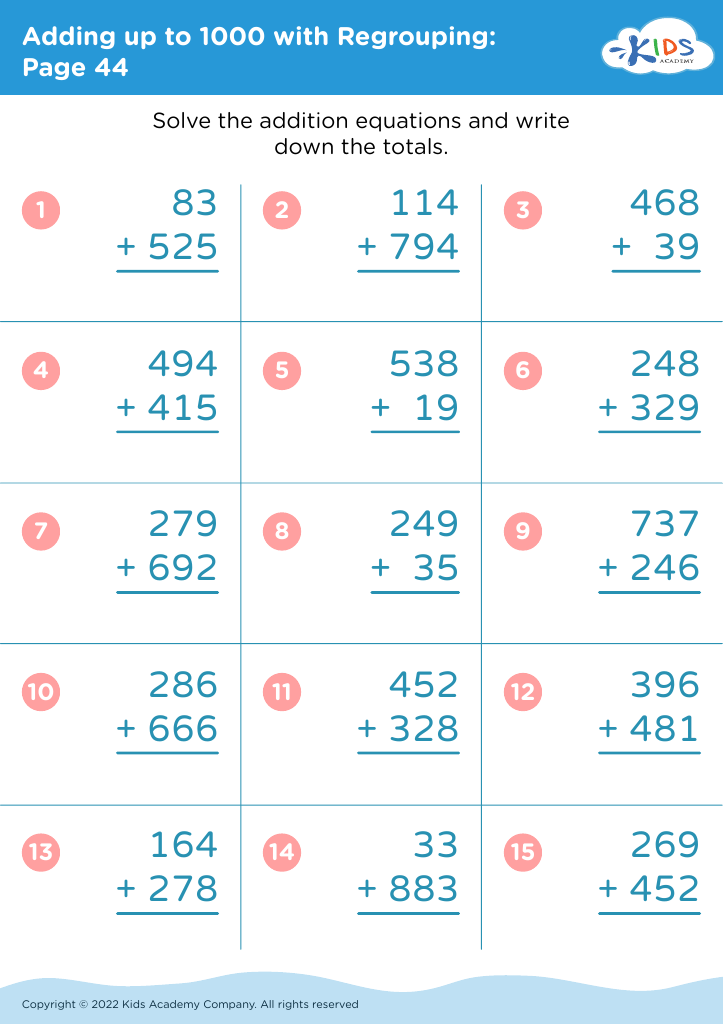Improve counting skills Adding up to 1000 with Regrouping Worksheets for Ages 3-7
3 filtered results
-
From - To
Boost your child’s counting skills with our engaging "Adding up to 1000 with Regrouping Worksheets," designed specifically for ages 3-7! These interactive worksheets introduce the concept of regrouping in a fun and accessible way, empowering young learners to master addition. Through colorful visuals and age-appropriate exercises, children foster essential math skills that build a strong foundation for future learning. Our carefully crafted activities also promote critical thinking and problem-solving abilities, making math an enjoyable experience. Explore our printable worksheets today and help your child improve their counting skills as they confidently add up to 1000 while preparing for more advanced concepts!
Counting skills and the ability to add up to 1000 with regrouping are foundational elements in a child's mathematical development. For children aged 3-7, developing these skills not only promotes numeracy but also enhances overall cognitive growth. Understanding place value and the process of regrouping significantly enriches their number sense, aiding in their ability to navigate more complex math concepts in later years.
Parents and teachers should prioritize these counting skills as they manifest in everyday situations, from managing money to measuring quantities in cooking. Mastery in counting and addition builds confidence in children, fostering a positive attitude towards math that can last a lifetime. Furthermore, these skills promote problem-solving abilities and logical reasoning.
Engaging with numbers through playful activities or practical applications ensures learning remains enjoyable. Children learn best when they can associate mathematical concepts with real-life scenarios. As they gain proficiency in mastering these skills, they develop persistence and critical thinking, making them more versatile learners. Supporting this developmental stage is essential for laying a solid foundation for future academic success and lifelong numeracy. Therefore, it is paramount for parents and educators to actively support and enhance counting skills in young learners.













